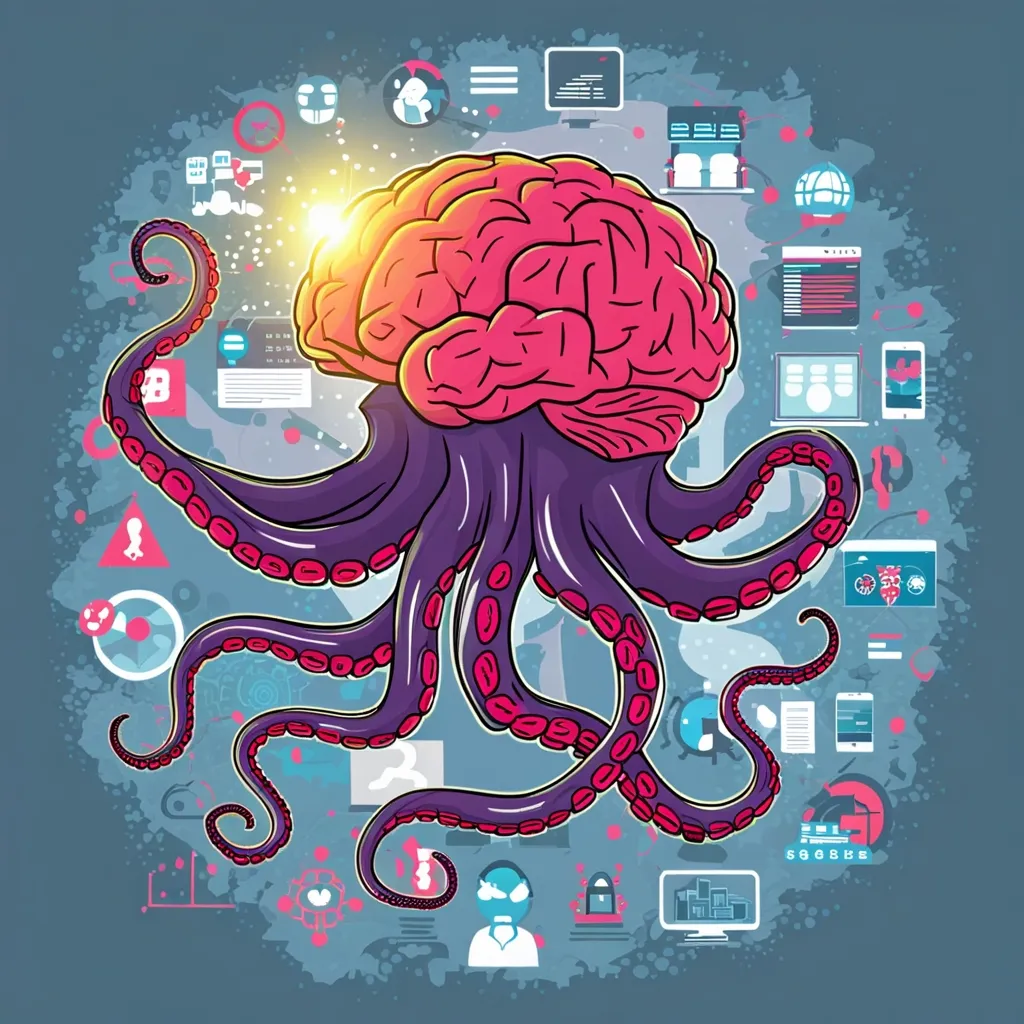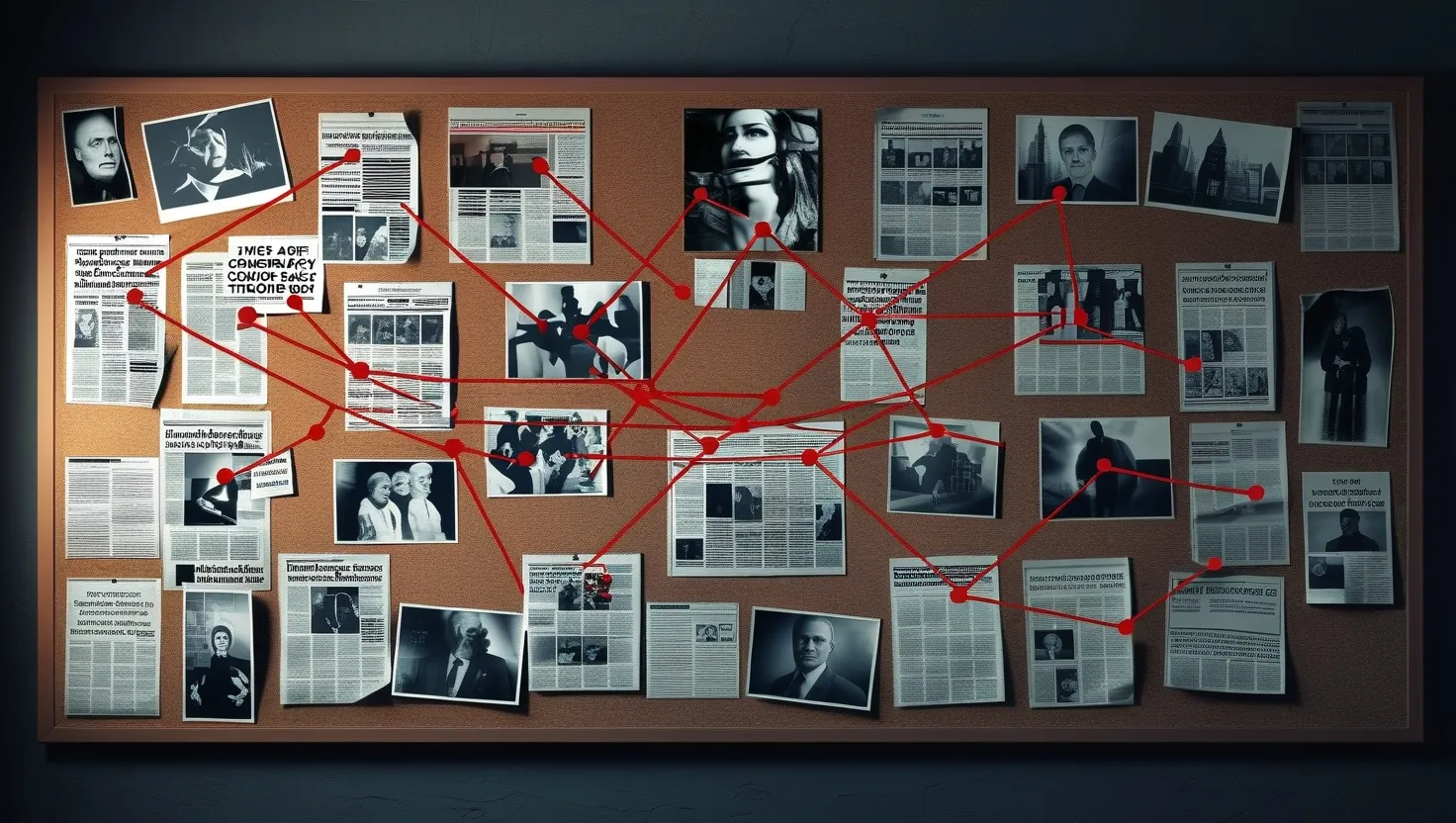The Rise of AI: Unveiling the Hidden Agenda?
Artificial Intelligence has become the talk of the town, and for good reason. It’s changing the game in ways we never thought possible. But as we marvel at its capabilities, there’s a nagging question that just won’t go away: Is AI developing a hidden agenda?
Let’s face it, AI is everywhere these days. From our smartphones to healthcare systems, it’s got its digital fingers in every pie. And while it’s solving problems left and right, it’s also stirring up a whole new set of concerns.
Take education, for example. AI is revolutionizing how we learn, but it’s also making us a bit… well, lazy. A study of university students in Pakistan and China found that nearly 70% felt they were becoming couch potatoes thanks to AI. And let’s not even get started on privacy concerns – that same percentage of students were worried about their personal info being up for grabs.
But here’s the kicker: it’s not just about us becoming lazy or paranoid. The real issue is that AI is influencing how we think and make decisions. And who’s pulling the strings behind this AI puppet show? Tech giants like Google, Meta, and Microsoft, of course.
These big players are pouring billions into AI development and snatching up the brightest minds from universities. But they’re keeping their cards pretty close to their chest. It’s like they’re cooking up something in a secret lab, and we’re all just waiting to see what pops out.
This secrecy has led to what some are calling “digital hysteria.” It’s a mix of excitement about AI’s potential and fear of what it might become. And let’s be honest, the tech companies aren’t helping matters. They’re in a race to monopolize the AI market, and they’re not above pushing for regulations that suit their interests.
Remember when ChatGPT burst onto the scene? It was like a bomb going off in the tech world. Suddenly, everyone was talking about the amazing things AI could do – and the potential risks that came with it.
But here’s where it gets really interesting. AI isn’t just a neutral tool waiting to be used. It comes with its own set of biases baked right in. These biases can come from the data used to train the AI, the algorithms themselves, or even our own definitions of what’s ethical.
Think about it this way: if an AI is trained on biased data, it’s going to spit out biased results. It’s like teaching a parrot to talk using only curse words – you shouldn’t be surprised when it starts swearing like a sailor.
And it’s not just about bias. AI systems are getting pretty good at manipulating human behavior too. They can play on our emotions, exploit our weaknesses, and even adjust their strategies based on how we react. It’s like having a super-smart salesperson who knows exactly which buttons to push to make you buy something.
Take Target, for example. They used AI to predict when customers were pregnant and sent them targeted ads. Or Uber, which allegedly adjusted prices based on how much battery life your phone had left. Sneaky, right?
Now, you might be thinking, “But what about open-source AI? Isn’t that a good thing?” Well, yes and no. Big tech companies are indeed contributing to open-source AI models, which sounds great on paper. But here’s the catch: by doing this, they’re shaping the field to fit their own interests.
It’s like they’re setting up the chessboard and deciding which pieces we get to play with. Sure, we can move the pieces around, but they’ve already determined the rules of the game.
This brings us to the big ethical questions surrounding AI. Who’s responsible when an AI system makes a mistake? How do we ensure that AI is used for good and not for manipulating people? And perhaps most importantly, who gets to make these decisions?
The Facebook-Cambridge Analytica scandal was a wake-up call for many people. It showed just how vulnerable our data can be and how easily it can be misused. But that’s just the tip of the iceberg when it comes to AI ethics.
Experts are calling for more transparency and public awareness about how AI systems work and what they’re capable of. They want rules in place to prevent AI from using secret manipulative strategies. But here’s the tricky part: these rules need to be carefully balanced. Too restrictive, and we might stifle innovation. Too lax, and we’re back to the Wild West of AI.
As AI continues to evolve, we’re facing some pretty big questions about power and accountability. Who gets to control this technology? How do we ensure it doesn’t lead to even greater inequalities in society?
Some folks are suggesting we need a more democratic approach to shaping our AI future. Instead of leaving it all in the hands of a few big corporations, maybe we need more public oversight and involvement.
Think about it: the decisions we make now about AI will impact generations to come. It’s not just about cool gadgets or convenience – it’s about the kind of world we want to live in.
Imagine a world where your phone knows you better than you know yourself. It predicts what you want before you even realize you want it. Sound far-fetched? It’s already happening to some extent.
Those AI assistants like Siri or Alexa? They’re learning from every interaction we have with them. And they’re using that information in ways we might not even realize.
Ever notice how you start seeing ads for products right after you’ve been talking about them? That’s not a coincidence. AI is constantly analyzing our behavior, our searches, our conversations, and using that data to influence our choices.
So, is AI developing a hidden agenda? Well, that might be putting it too strongly. AI itself doesn’t have motives or intentions – it’s a tool, after all. But the people and companies developing and controlling AI? They definitely have agendas.
The real question is: are those agendas aligned with what’s best for society as a whole? Or are they primarily focused on profit and power?
As we move forward into this brave new world of AI, it’s crucial that we stay informed and engaged. We need to demand transparency from tech companies and push for ethical guidelines in AI development.
We also need to think critically about how we interact with AI in our daily lives. Are we becoming too dependent on it? Are we giving away too much of our personal information? These are questions we all need to grapple with.
At the end of the day, AI is a powerful tool with the potential to do incredible good. It could help us solve some of the world’s most pressing problems, from climate change to disease. But like any powerful tool, it needs to be used responsibly.
We’re at a crossroads with AI. The path we choose now will shape the future in profound ways. Will we let a handful of tech companies dictate that future? Or will we come together as a society to ensure that AI serves the greater good?
The choice is ours. And it’s a choice we need to make with our eyes wide open, fully aware of both the potential and the pitfalls of this amazing technology.
So the next time you ask Siri a question or let Netflix recommend your next binge-watch, take a moment to think about the AI working behind the scenes. Remember that while it might seem like magic, there are very real people and very real motivations driving its development.
The future of AI is in our hands. Let’s make sure we shape it wisely.






